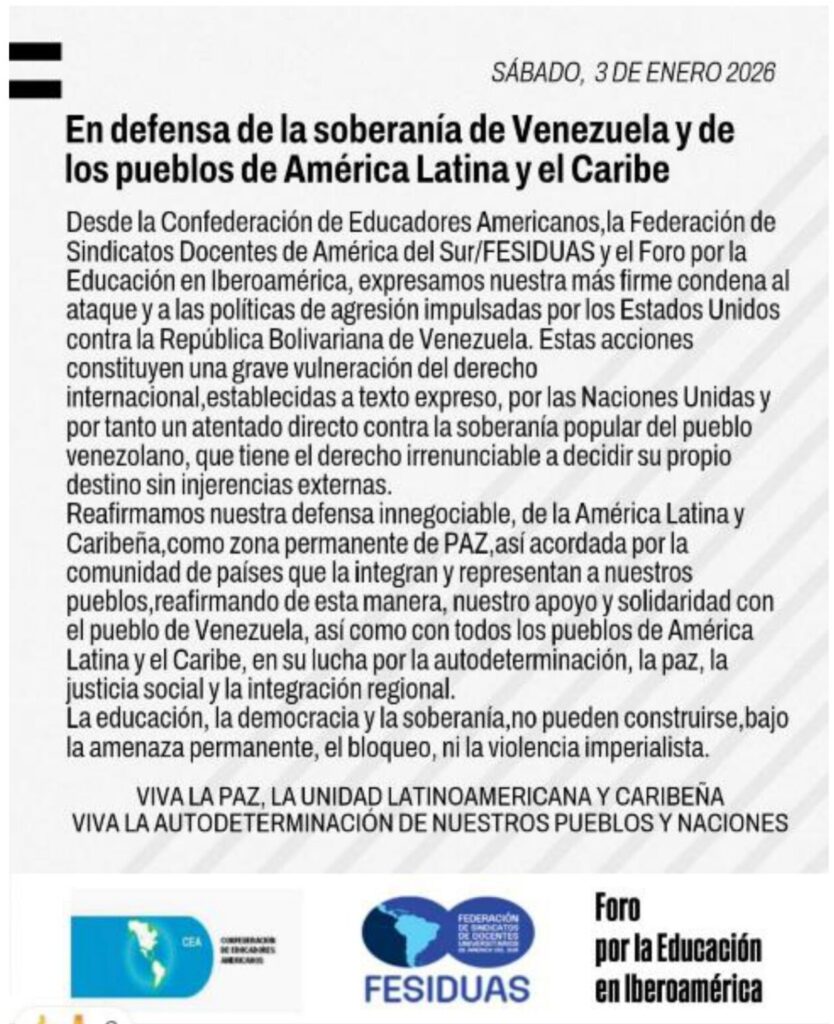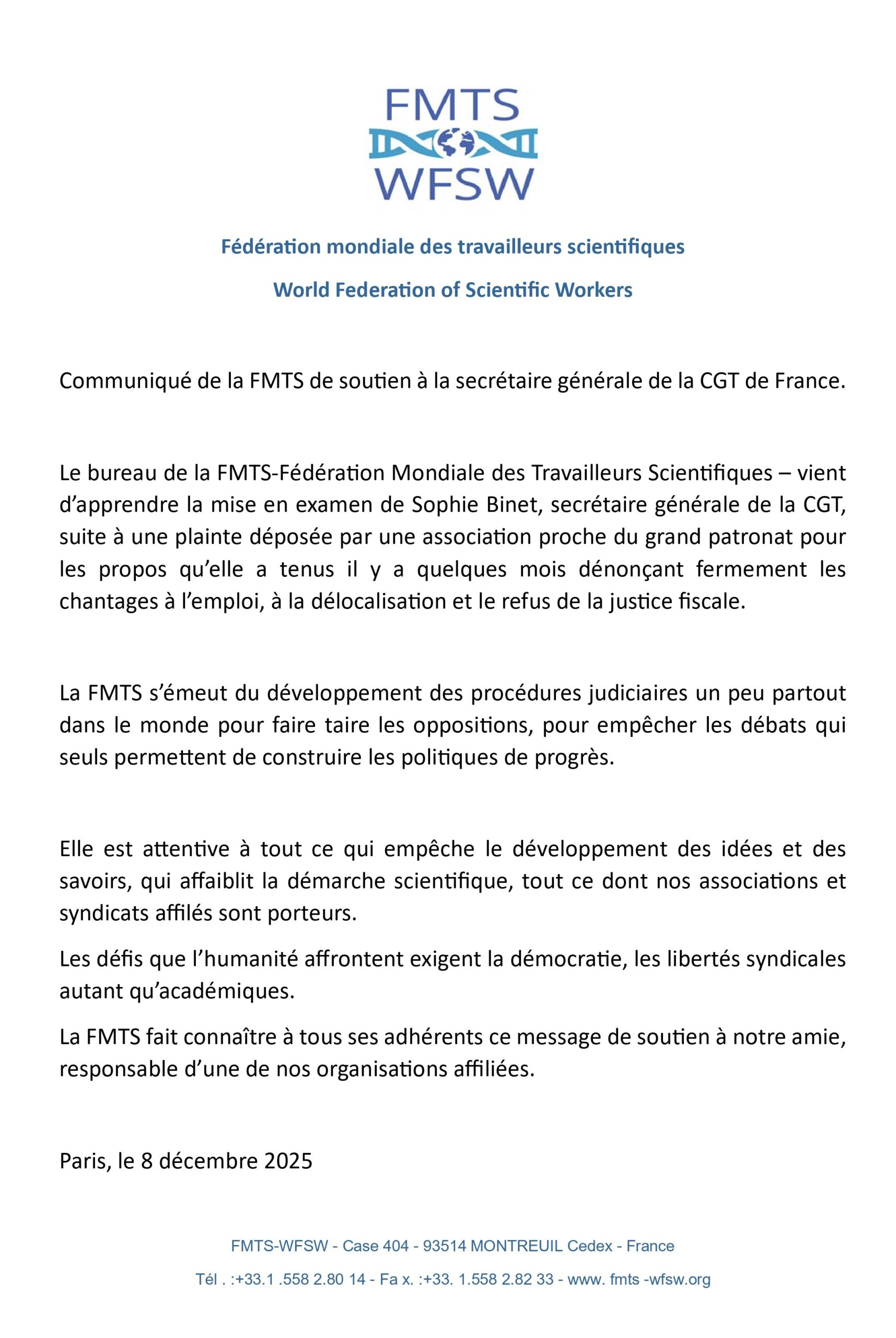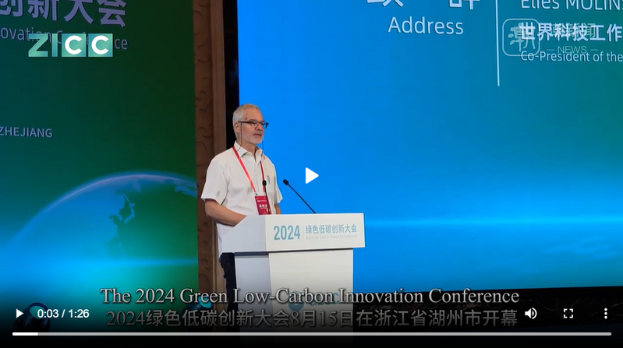The WFSW and an UNO reform
The United Nations Organization does not play fully the role for which it was created. Many voices, including the ones of certain Member States are asking for its reform,
The Scientific community is concerned with the role of the United Nations: Scientific workers are citizens but, in addition, their professional competences can be requested, for example for the monitoring of agreements on armaments, climate, food, health, information, etc. And conversely, problems specific to science are not independent of the geopolitical context in which they are posed: the condition of researchers, teachers and engineers, the openness of scientific information, the marketing of scientific knowledge, etc.
For these reasons and because the WFSW is a worldwide organization, she must be able to deliver her opinion on the role of the United Nations and on the necessity of their reform. It does not lie within the scope of the responsibilities of the WFSW (or her competences) to propose an overall reform, “point by point”, of the United Nations. But the World Federation must have an opinion on questions of principle at the base of a reform.
The WFSW is ready to support in particular the following stances:
I- Authority, efficiency, unicity of structure, means of action
The Secretary General of UNO should have the means to efficiently implement the resolutions of the General Assembly and the decisions voted by the Security Council. In particular he should have the required military and financial means, as well as intelligence means. These means should be at the disposal of the Secretary General himself. Additional means might be given to the Secretary General by member states.
The objectives of the World Bank, the International Monetary Fund and the World Trade Organization should be defined by the General Assembly of the United Nations. These organizations should be placed effectively under the authority of the Secretary General of the United Nations.
In the event of a crisis or of a conflict, actions that are not taken within the framework of the resolutions of the United Nations must be explicitly regarded as illegitimate.
II.- the Security Council
Among the permanent members, all regions of the world must be represented on an equal basis, without consideration of economic weight.
If it is agreed to include several additional permanent members, all the permanent members must have the same rights. There should not be two categories of permanent members, those with right of veto and those without right of veto.
The number of permanent members must remain sufficiently limited to be effective.
III- Sanctions and the right of interference
Experience shows that economic sanctions generally penalize the population of the country sanctioned without forcing its leaders to respect the resolutions of the Security Council. The priority must be given to political sanctions. Article 41 the Charter should be amended in this direction.
The decision of an armed intervention in any country must necessarily be taken with the agreement of all permanent members.
Chapter VII of the charter relates to “Action with respect to threats to peace, breaches of peace, and acts of aggression”. In this chapter, articles 42 to 49 relate to the recourse to force. It is imperative that any “interference”, be decided and managed by the Security Council and only by it. This principle must be respected whatever the origin of the problem or the region where the problem arises, and must be directed towards the prevention of war or acts of aggression and the reestablishment of peace and security in the troubled regions.
Subparagraph 3 of article 43, of the Charter of the United Nations provides that the Security Council can pass agreements either with “Members of the Organization” or with “groups of Members of the Organization”. In any circumstances, a military action must be placed under the direct and exclusive responsibility of the Security Council. Article 43, subparagraph 3, must be modified. In this context, the existence of politico-military blocks should be prohibited and any existent such blocks abolished.
The WFSW would like to open a debate:
Should the General Assembly of the UN have real legislative capacities?
Would the creation of a “Parliament of peoples” be a good thing? This Parliament would have capacities equal to those of the General Assembly of the UN? If so, what should be its composition, what should be its role? This question, in fact, is the one of the role of the civil society.
Would it be desirable that certain regional organizations enter in the Security Council of the UN?




